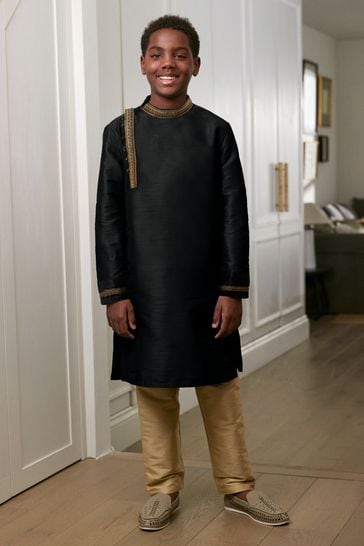
شراء BE | كورتا مستقيمة من مزيج القطن الصدأ اللامع مع تفاصيل شرابة بلون مغاير حول الفتحة والحافة في الدوحة ، قطر - Menahub

طقم بنطلون ملابس قطني للأطفال من سن 1-2 سنوات بيج أسود كورتا بيجامة قطعتان نصف كم فستان للأطفال الصغار : Amazon.ae: ملابس وأحذية ومجوهرات

طقم بيجامة كورتا كورتا مع جاكيت نهرو للرجال من شريانفي للحفلات التقليدية الهندية، اسود، مقاس 32 : Amazon.ae: ملابس وأحذية ومجوهرات

مجموعة ملابس قطنية للأطفال من سن 6 إلى 12 شهرًا لون بيج أسود كورتا بيجامة قطعتان نصف كم فستان للأطفال الصغار : Amazon.ae: ملابس وأحذية ومجوهرات

سوجانيا طقم بيجامة كورتا من القطن والكتان مطبوع عليه رقائق معدنية سوداء للرجال من منذ عام 1958، لون اسود ورمادي وذهبي، مقاس L: اشتري اون لاين بأفضل الاسعار في السعودية - سوق.كوم

مجموعة ملابس قطنية للأطفال من سن 6 إلى 12 شهرًا لون بيج أسود كورتا بيجامة قطعتان نصف كم فستان للأطفال الصغار : Amazon.ae: ملابس وأحذية ومجوهرات

كورتا من القطن والكتان الأسود من JBN Creation للأولاد مع بيجامة قطنية (المقاس: 3-4 سنوات), أسود, 3-4T : Amazon.ae: ملابس وأحذية ومجوهرات

طقم بنطلون قطني للفتيات الصغيرات مكون من 3-4 سنوات أسود أحمر كورتا بيجامة قطعتان بدون أكمام للأطفال الصغار : Amazon.ae: ملابس وأحذية ومجوهرات

طقم بيجامة باثاني كورتا قطن رجالي (سالوار)، زي هندي بتصميم تقليدي من اي تي او اس 365، زي هندي عصري للحفلات، أسود مقاس S-M: اشتري اون لاين بأفضل الاسعار في السعودية -

سعر طقم بيجاما كورتا رجالي من سكافيج مصنوعة من الحرير الهندي التقليدي أسود S فى السعودية | بواسطة امازون السعودية | كان بكام








/fit-in/570x570/import/9110401/1704758086-2HMrJ8jiN8-pamuklu-uzun-kollu-erkek-pijama-takimi-babalar-gunu-hediyesi-8352.jpg)


